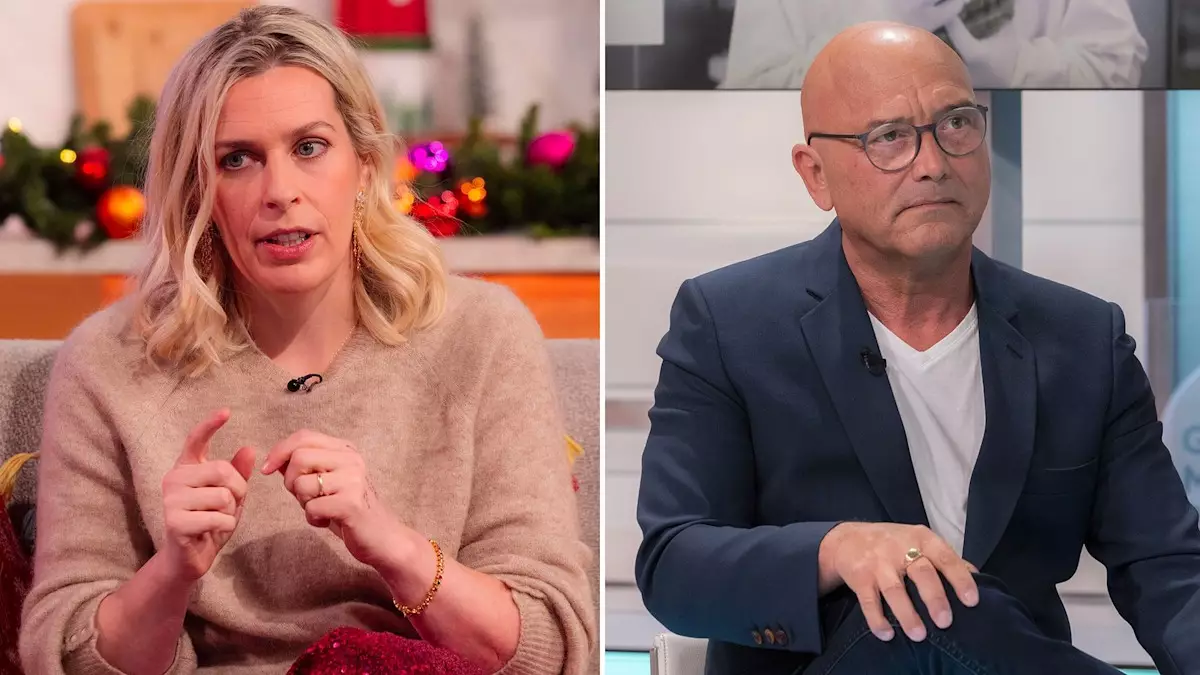In a recent episode of the popular daytime show Lorraine, viewers witnessed an unexpected moment of candor from comedian Sara Pascoe. She joined host Lorraine Kelly to discuss the return of The Great British Sewing Bee and quickly shifted focus to the highly publicized allegations against former colleague Gregg Wallace. This moment not only highlighted the evolving dynamics of workplace interactions but also opened up a discourse on power, privilege, and accountability in the public eye.
During their conversation, Pascoe and Kelly cleverly addressed the complexities of their identities, labeling themselves as “middle-aged women of a certain class.” This self-description was a pointed acknowledgment of the social standing that both women occupy, which is often scrutinized when addressing serious issues like misconduct. By openly discussing the fallout from Wallace’s controversial comments, they exhibited a united front against his dismissive remarks regarding the women who accused him. The duo painted themselves not just as passive commentators but as formidable figures capable of prompting significant dialogue about power dynamics.
Gregg Wallace’s recent video, which sparked outrage across social media platforms, quickly became the focal point of the conversation. In it, Wallace characterized the complainants—thirteen women who accused him of inappropriate behavior—as a “handful of middle-class women of a certain age,” grossly undermining their experiences. His comments, described by critics as misogynistic, not only alienated him from the public but reignited conversations about male privilege and the persistent challenges faced by women in the entertainment industry.
In response to the backlash, Wallace issued a public apology through his Instagram account, expressing remorse for the distress caused by his words. While the apology may be seen as a step toward accountability, it raises questions about the sincerity of public figures when faced with criticism. Did Wallace genuinely reflect upon his mistakes, or was this merely a reaction to the fallout? The need for a “time out” that he mentioned suggests a recognition of his own limitations and the overwhelming pressure he may be facing as allegations loom against him.
The contrasting reactions from Pascoe and Wallace highlight the importance of accountability in the entertainment industry. Pascoe’s sharp observations in support of her colleagues contrasted sharply with Wallace’s defensive stance. This dichotomy serves as a reminder that as conversations about gender, power, and conduct evolve, those in positions of influence must be held to a comprehensive standard of behavior.
Ultimately, moments like these encourage us to examine the narratives surrounding women’s experiences in professional environments and the systemic issues that often prevent meaningful change. The dialogue opened by Pascoe and Kelly offers a glimpse into the potential for transformation when women assert their voices and demand respect, challenging outdated norms and fostering an environment where accountability can thrive.

